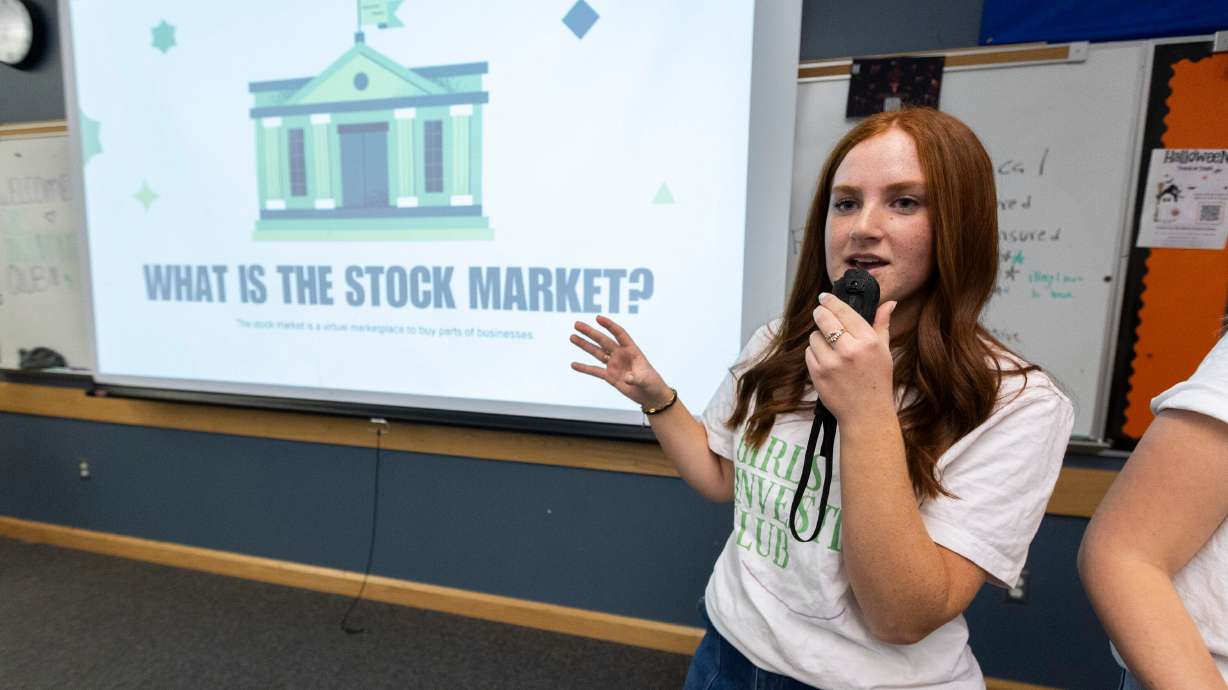Estimated read time: 5-6 minutes
- Utah ranks first in the nation for high school financial literacy, according to WalletHub's report.
- Students must pass a financial literacy course, ensuring robust budgeting education statewide.
- Utah's financial education includes personal finance, economics and standardized testing requirements.
SALT LAKE CITY — Want some solid money advice? You might consider asking a local high school kid.
Utah is No. 1 in the nation for high school budgeting education, according to a WalletHub report released this week.
The personal finance platform compared all 50 states and the District of Columbia using a series of metrics ranging from whether high school students are required to take personal finance courses to financial literacy test scores.
The Beehive State edged out Virginia for top "High School Budgeting Education" honors — followed by North Carolina, Georgia, Florida and Mississippi.
Massachusetts, Wyoming, Montana, South Dakota and Alaska were the bottom five states on WalletHub's list.
Utah, according to WalletHub researchers, has "the most robust budgeting education, in part because students are required to take personal-finance and economics courses during high school.
"Utah also conducts standardized testing on both personal finance and economics."
Those course requirements have helped Utah achieve the highest possible high school financial literacy grade from the American Public Education Foundation — and the state is projected to maintain this top rank through at least 2028, according to WalletHub.
To graduate, Utah high school students are required to pass a General Financial Literacy course, according to the Utah State Board of Education. Designed for high school juniors and seniors, General Financial Literacy is a half-credit course that covers financial planning, career preparation, money management, saving and investing and other personal finance topics.
"The course aims to prepare students to effectively manage their finances and achieve their financial goals," according to the state school board.
Additionally, Utah has the highest share of eighth graders who are proficient in math — which means that they are well prepared to learn financial concepts in high school, according to WalletHub.
"All high school students should have mandatory personal finance education, including instruction in budgeting," said WalletHub analyst Chip Lupo.
"Students who learn to budget before they join the workforce will be able to make much better financial decisions. They will also be able to save more for the future and are likely to have higher credit scores than their peers who never learned how to budget — or who had to figure things out on their own without instruction."

Ranking methodology
To determine the states with the best high school budgeting education, WalletHub compared the 50 states and the District of Columbia across two key dimensions: financial education performance and access and financial education growth.
Highlights of the "financial education performance and access" dimension — where Utah finished No. 1 — include metrics such as students being required to take personal finance and economics classes and whether states required standardized testing of personal finance and economic concepts.
Lyndze Dupape has taught financial literacy courses at Utah's Herriman High School for four years.
She teaches a wide range of students with different family backgrounds, academic interests and career goals. But each student will be well served if they graduate from high school understanding — and living — the basics of personal finance.
Dupape said most of her students arrive in class on Day 1 equipped with not much financial literacy. "For the majority of them, it is new information," she told the Deseret News.
"There will be a handful that have had parents who have been involved in teaching them about finance — but for the most part, they are pretty new to it."
And many of the 16- or 17-year-olds in Dupape's financial literacy classes have never had a job, or are fairly new to the workforce. "So they might not have had enough time to really learn how to manage money and can't always apply the principles we are learning."
Personal finance is a broad field, and Dupape said that's reflected in her financial literacy curriculum.
She said the class typically begins with instruction about budgeting and behavioral economics—the psychology behind spending money.
This is followed by discussions on banking, investing, insurance, credit cards and credit scores, debt management, and taxes.
"And we also have a small unit where we do some career investigation and talk about (money) things like paying for college," she said.
Making finance matters applicable to Utah students
Dupape added that the challenge for all Utah high school financial literacy instructors is to make the instruction as applicable as possible for each student. So there's plenty of discussion about, say, the differences between good and bad debt and shopping for the best form of car insurance.
"I'll have maybe three or four students in each class that are actually paying bills at home, such as their cellphones or their car insurance," she said. "And I might have one or two students each semester who are actively involved in investing with their parents."
Earlier this academic year, Herriman High School students organized a "Girls Investing Club" to accelerate their understanding of advanced finance topics such as stock trading, Roth IRA contributions, compound interest, retirement planning and entrepreneurship.

Raising money-savvy kids
While every Utah high school student will be exposed to financial literacy instruction in class, Dupape encourages parents to take a shared role in raising money-savvy kids.
Growing up in Washington, she did not have access to a financial education in high school and learned many money lessons "the hard way as an adult."
Moms and dads, she added, can work alongside Utah's high school financial literacy teachers.
"Have conversations with your children about money. Talk about your financial situations and why you make the financial decisions you are making. … And ask them about what they are learning in their financial literacy classes."









